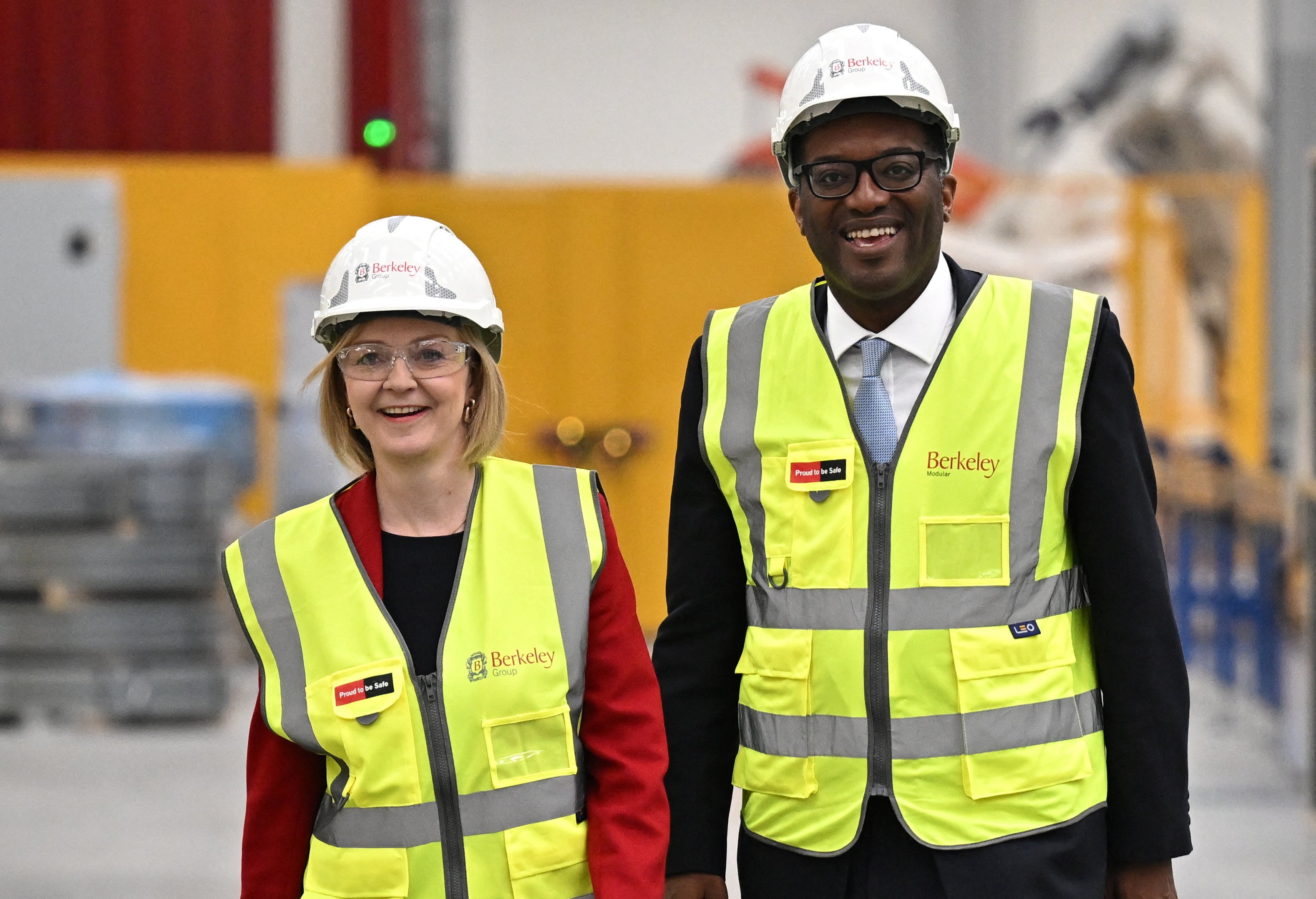Labour surges to largest poll lead over Tories in more than two decades
The 17-point lead represents a level of support Labour had not had since 2001

Labour’s lead over the Conservatives has grown to its largest in more than two decades following the government’s unpopular plan to cut taxes and increase borrowing, according to a new poll.
The party headed by Sir Keir Starmer has an approval rating of 45 per cent while the Tories led by new prime minister Liz Truss trail behind at 28 per cent, the YouGov poll commissioned by The Times suggests.
The 17-point lead represents a level of support for Labour not been seen since polling began in 2001, at the time of Tony Blair’s landslide victory against the Conservatives led by William Hague.
Support for the Tories had fallen by four points while Labour’s had risen five points. In third place, the Liberal Democrats were unchanged at 8 per cent.
A total of 1,730 British adults were surveyed between September 23 and 25, after new chancellor Kwasi Kwarteng announced his controversial mini-budget on Friday.

The poll suggests that voters are being turned off by his tax cuts worth £45bn – including axing the 45p tax rate for top earners, reversing his predecessor Rishi Sunak’s national insurance hikes, and the reduction to stamp duty – to break what he called the “vicious cycle of stagnation”.
The tax cuts mean that borrowing would have to be increased in the short term, a move that many Tory MPs have opposed – so much so that one former minister told Sky News that Ms Truss and the Treasury ministers were “playing A-level economics with people’s lives”.
The uncosted mini-budget has also sent the UK economy into a tailspin, as the pound plunged by 4 per cent against the dollar to $1.03 on Monday morning before making a slight improvement.
The Bank of England said that it could, yet again, increase interest rates – but this time by “as much as needed” in an attempt to steady the pound and control inflation.
Mr Kwarteng’s plan to scrap the 45p tax for those earning more than £150,000 was opposed by 72 per cent of respondents to the YouGov survey, including 69 per cent of participants who voted for the Tories in 2019.
His plan to lift caps on bankers’ bonuses was rejected by 71 per cent of respondents, including 67 per cent of Tory voters.

Just 9 per cent of voters thought that the measures outlined in the budget would make them better off, while only 15 per cent believed they would achieve the government’s aim of stimulating economic growth.
Overall, 60 per cent said Mr Kwarteng’s tax cuts were unaffordable for the country and 25 per cent thought that the government had a clear plan to manage the economy.
Just 19 per cent of voters thought his mini-budget was “fair”, which YouGov said was the worst outcome for this question since it began to ask it in 2010.
Only 10 per cent of voters thought that Mr Kwarteng was doing a “good job” while 68 per cent said that the government was managing the economy badly.
The Times reported that ministers could, in their defence, point to some measures in the mini-Budget that are popular.
Some 60 per cent backed the move to cut the basic rate of income tax from 20 to 19 per cent while 59 per cent supported reversing the rise in national insurance. About half backed planned changes to stamp duty.
However, just 31 per cent supported the decision to freeze corporation tax while only 11 per cent agreed with scrapping the 45 per cent tax rate for the highest earners.






Join our commenting forum
Join thought-provoking conversations, follow other Independent readers and see their replies
Comments